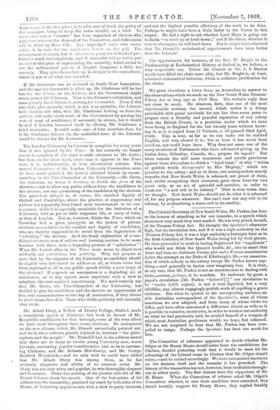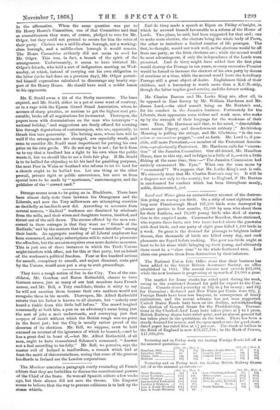The Committee of reference appointed to decide whether Mr. Odger
or Sir Henry Hoare should retire from the candidature for Chelsea, decided yesterday week that it would be most for the advantage of the Liberal cause in Chelsea that Mr. Odger should retire,—and he retired accordingly. We have commented elsewhere on the decision itself and the remarks it has provoked. The history of the transaction has not, however, been creditable through- out to either party. The first sinners were the supporters of Sir H. Hoare. When the Committee of referees asked Mr. Odger's Committee whether, in case their candidate were scratched, they would heartily support Sir Henry Hoare, they replied frankly in the affirmative. When the same question was put to Sir Henry Hoare's Committee, one of that Committee said that as committeemen they were, of course, pledged to vote for Mr. Odger, but they could not pretend to secure for him the votes of their party. Chelsea was a middle-class borough, not a working- class borough, and a middle-class borough it would remain. The Hoare Committee evidently did not mean to work for Mr. Odger. This was, in fact, a breach of the spirit of the arrangement. Unfortunately, it seems to have irritated Mr. Odger's friends, who held a sort of indignation meeting on Wed- nesday, at which, instead of carrying out his own obligation to the letter (as he had done on a previous day), Mr. Odger permit- ted himself expressions calculated to discourage any hearty sup- port of Sir Henry Hoare. He should have read a nobler lesson to his opponents.































 Previous page
Previous page